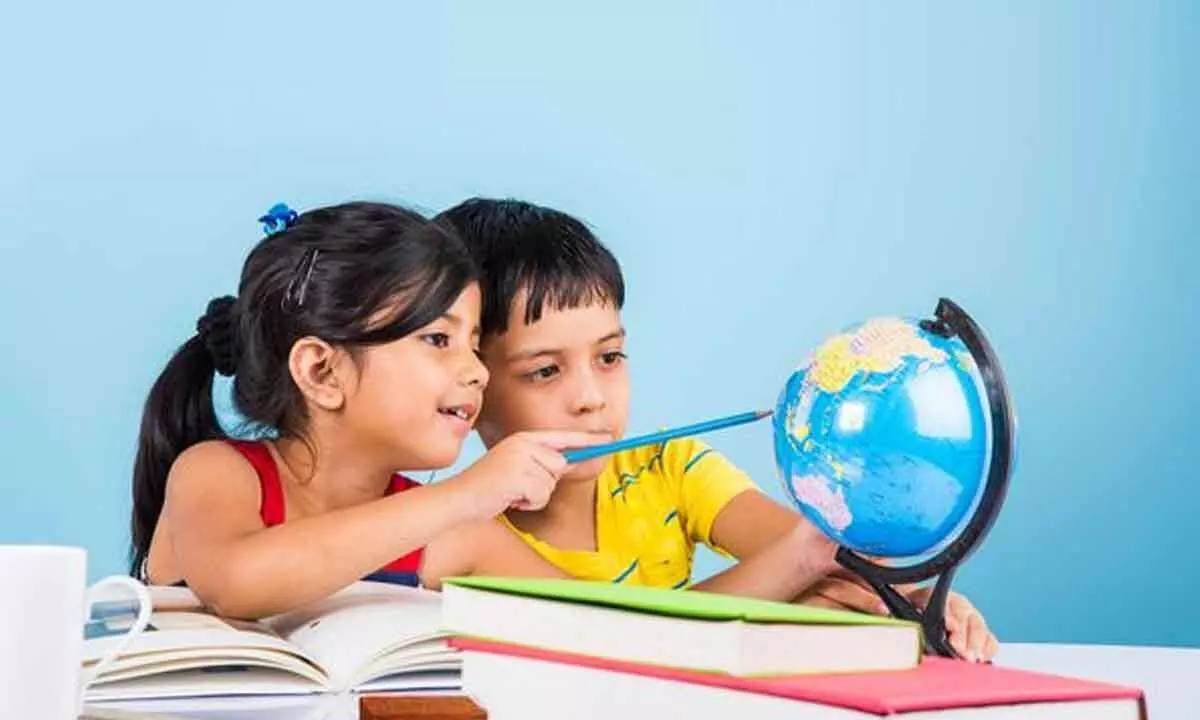The importance of early childhood education

The early years in a child’s life, from birth until 5 years of age, are some of the most important in terms of human growth and development.
The early years in a child's life, from birth until 5 years of age, are some of the most important in terms of human growth and development.
Typically known as the preschool years, or foundation years, they represent a time of rapid psychological growth and cognitive development that eventually get carried into adulthood. Thus, over the past few decades, there has been an increasing amount of research demonstrating the importance of investing in the development of Early Childhood Care and Education (ECCE), to create well-balanced individuals who are able to become full-fledged adults in the modern world.
What is ECCE and why must we pay attention to it?
UNESCO defines ECCE as 'more than preparation for primary school. It aims at the holistic development of a child's social, emotional, cognitive, and physical needs in order to build a solid and broad foundation for lifelong learning and wellbeing.' In essence, early childhood education and care encompass the academic and non-academic development of children through education (kindergarten and preschool) to prosper in school and in life. Despite the plethora of credible research that supports the importance of prioritising ECCE, it is often a marginalised concern, making it even more crucial to highlight its tangible benefits for young children.
Brain development
Science tells us that a one-year-old baby's brain is already 70 percent of its adult size and that by age three, it is at 85 percent – having already formed hundreds of neural pathways and connections that are required for human thought and communication.
Early childhood education and care endeavours to leverage this period of rich brain development in children to help them achieve their full potential in terms of laying the foundation of education, social and emotional skills, and good health and nutrition. Considering the dynamic and malleable nature of the brain in this nascent period, children can undergo remarkable development, in terms of cognitive and social learning, through ECCE.
Even the most basic activities such as puzzle-solving, building with blocks and music classes that are curated by early childhood educators and teachers at preschool, can be extremely beneficial for the development of a child's brain and for enhancing analytical and reasoning skills.
Socialisation and sensitisation
Socialisation as a concept takes root during early childhood. As children step outside their homes for the first time to attend preschool, they are put into an environment with other children their age, forming the very first instances of social bonds among them. Early childhood education is specifically designed to help children discover the joys of friendship, thus laying the foundation for socialisation skills that make for the edifice of adult life. Furthermore, it is during early childhood that children start to develop a sense of self-awareness and acquire certain basic values and life lessons.
Hence, it is extremely important for ECCE curriculums and teachers to assist children in veering away from unhealthy stereotypes and negative perceptions of other children. One of the best examples of this would be to help get rid of gender stereotypes at the very outset, by giving both girls and boys the opportunity to be emotional, strong, adventurous, gentle, nurturing, and assertive, since these are traits that are often considered gender specific.
Teamwork
In today's highly competitive work environment, the collective intelligence of the team that arises from collaboration and teamwork is often more valued than a single person's capabilities.
The foundation for teamwork is once again laid during early childhood when children learn to play and learn via group activities. An individual's ability to work as part of a team, respect others' opinions and be a keen listener can be developed early on through positive early childhood education experiences. Through teamwork during their early childhood years, children can be taught to improve their attitudes towards team activities and eventually carry this trait into adulthood.
Exposure to diversity
In an increasingly multicultural and global society, appreciation for different cultures would be one of the most important skills for people to acquire. Preschools and kindergartens can provide diverse environments for children where they are exposed to other cultures, ethnicities, and religions. And although these differences may not be pronounced at such a young age, they can be important precursors to developing attitudes of acceptance in the future.
Early childhood is an impressionable age for children, and it can influence their overall emotional and physical development profoundly. Hence, it is of utmost importance that ECCE is prioritised in countries across the world. In India, the long-pending change is now in the spotlight due to the announcement of the new National Education Policy (NEP) in 2020, which justifiably focuses on the universalisation of ECCE and its implementation and functioning across all Indian states. ECCE has deep implications for the social and economic health of our country, and the world at large, as it is the first step towards helping people to develop the skills, they need to navigate a world in flux, one that is ever-changing and full of new challenges.
(The author is the Vice Chairperson, VIBGYOR Group of Schools)

